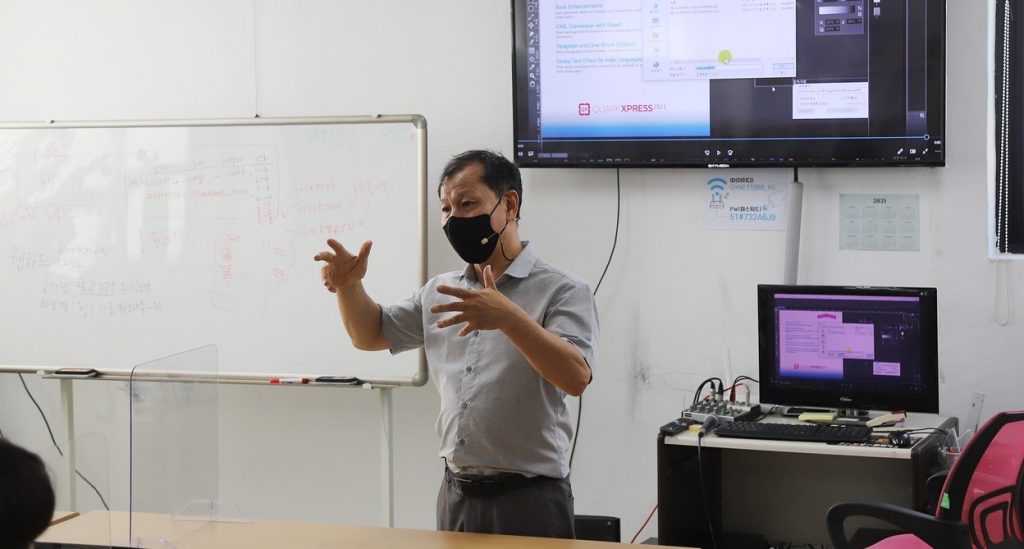Broadly speaking, there are two types of professors: course teachers, who rely on textbooks and whose work is tightly related to helping students assimilate fundamental information and form a specific set of skills, and facilitators, whose primary focus is on motivating learners to engage in self-study, to explore and to self-assess the amount of knowledge they have gathered and the skills they have acquired (Sethy, 2018). Higher Education (HE) professors are, in many universities, expected to work as facilitators, and they have relative autonomy concerning the contents they teach, the pedagogical approach, the instructional design, and the assessment methods to be used. That should be simple for someone who has good intentions regarding their students and who has a good command of relevant knowledge, right? Wrong.
While all professors are expected to possess a fair amount of knowledge in their field and the necessary skills to teach others, the peculiarities of HE and the more recent global developments impose additional expectations on professors working in academia. The autonomy of HE professors and their mission to inspire students to develop themselves raise some questions regarding what being a professional professor in HE means. Additional challenges come from the fact that the persons that HE professors meet in class are increasingly diverse, including students who perhaps are not proficient in the teaching language, immigrant students, and disadvantaged students (OECD, 2016).
Professionalism derives, in the case of HE professors, from their capacity to comply with implicit and explicit standards for educators, which are generally transmitted by the Education Ministry of each country, and by the University’s Board, through the Code of Ethics and/ or the University’s Carta. Among the general requirements that professors need to follow, apart from being specialists in their field, professors find following a specific dress code and being able to communicate properly with students, students’ family members, administrative staff, other professors, researchers, representatives of funding bodies, various public institutions, and partners. Above all, professors are required to act with integrity and show courtesy. For a professor, professionalism is deeply related to having a well-developed moral compass (Campbell, 2003). The professionalism of the professor and the professor’s capacity to continuously improve their professional skills are, consequently, pre-requisite for education excellence. The professor’s self-awareness and their desire to welcome diversity and to find ways to establish meaningful connections with all of their students are necessary.
What could a HE institution do to make sure that its faculty is adequately professional? While it is rather difficult to teach an adult to have moral agency, some recommendations that would ensure a high degree of professionalism in HE professors have been advanced by Sethy (2018): (i) the professors should earn a degree that would certify their capacity to teach in HE, (ii) the professors should follow a Code of Ethics, (iii) the professors shall enter professional associations, (iv) the professor shall have autonomy in developing the course curriculum, the instruction design, the delivery of the course, and the evaluation, as granted through the Code of Ethics, while being asked to fulfill certain responsibilities, (v) the Code of Ethics shall be revised at least once every three years, to include amendments.
Sources
Campbell, E. (2003). The Ethical Teacher. Open University Press
OECD (2016). Supporting Teacher Professionalism. Insights from TALIS 2013.OECD Publishing. https://doi.org/10.1787/9789264248601-en
Sethy, S.S. (2018). Academic Ethics: Teaching Profession and Teacher Professionalism in Higher Education Settings. Journal of Academic Ethics, 16(6). https://doi.org/10.1007/s10805-018-9313-6
https://www.indeed.com/career-advice/career-development/professionalism-in-teaching
About the author
Andreea Mitan is a Lecturer in Communication and Marketing at SNSPA, the Executive Director of the Center for Research in Management, and the CEO of the Norwegian-Romanian Chamber of Commerce. She is an experienced consultant in marketing and communication, having worked since 2006 with various organizations in Europe. She holds a PhD in Communication Studies (2014) and is a PhD candidate in Management. She is affiliated to B.S.Lab – Business Systems Laboratory, and EBES – Eurasia Business and Economics Society, and a member of the Editorial Board of the International Journal of Electronic Marketing and Retailing (Inderscience). She serves as a reviewer for Kybernetes (Emerald), Journal of International Management (Elsevier), and Management Dynamics in the Knowledge Economy. Her current research focuses on business internationalization and human capital.

